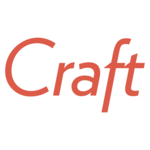Description

Smartfolio

XWiki
Comprehensive Overview: Smartfolio vs XWiki
As of my knowledge cutoff in October 2023, Smartfolio and XWiki are different products, each serving distinct purposes and markets. Here's a detailed comparison and overview:
a) Primary Functions and Target Markets
Smartfolio:
- Primary Functions: Smartfolio typically acts as a portfolio management platform for wealth management professionals. It is designed to offer tools for advisory portfolio construction, rebalancing, performance measurement, risk analysis, and reporting.
- Target Markets: Its primary market is the financial services industry, particularly focusing on asset managers, wealth managers, financial advisors, and investment managers who are seeking to streamline their investment management processes.
XWiki:
- Primary Functions: XWiki is an open-source collaborative platform that enables users to create, edit, and share content within a structured wiki environment. Its main functionalities include content management, document collaboration, knowledge base creation, and business application development.
- Target Markets: The target market for XWiki includes businesses and organizations looking for customizable and collaborative solutions to manage documents and facilitate information sharing. It appeals to enterprises, educational institutions, and public sector organizations seeking alternatives to proprietary collaboration tools.
b) Overall Market Share and User Base
Given the different nature of the products, a direct comparison in terms of market share can be challenging. However, here's a broad view:
-
Smartfolio:
- It serves a niche market of financial services, and its market share is primarily within the wealth management technology solutions segment. Its user base is specialized, comprising clients needing sophisticated investment portfolio tools.
-
XWiki:
- XWiki competes in a broader and highly competitive market of collaboration and enterprise content management tools. Its user base might be significantly larger due to its open-source nature, appealing to cost-savvy and tech-efficient organizations globally.
c) Key Differentiating Factors
-
Nature of Product:
- Smartfolio: Focuses on financial portfolio management with built-in analytical and reporting capabilities tailored specifically to finance professionals.
- XWiki: Offers content management and collaboration, fully customizable due to its open-source nature, adaptable to various industries beyond finance.
-
Customization and Flexibility:
- XWiki: Highly customizable due to its open-source model, allowing organizations to tailor the platform to their specific needs and industry requirements.
- Smartfolio: Although it offers specialized financial tools, it may not match the customization flexibility of an open-source platform like XWiki.
-
Industry Focus:
- Smartfolio: Exclusively serves the finance sector with targeted functionality.
- XWiki: Serves a wider range of industries, adaptable for any organization needing collaboration and content management tools.
-
Pricing Models:
- Smartfolio: Typically follows a SaaS or license-based model, often with a pricing structure fitting financial services.
- XWiki: While providing a free open-source version, XWiki also offers enterprise solutions that come with a range of support and hosting services at different tiers.
In conclusion, Smartfolio and XWiki serve different markets with distinct functionalities. Smartfolio is tailored for the structured needs of the finance industry, while XWiki provides a broad, customizable platform for content collaboration aimed at a wide range of sectors.
Contact Info

Year founded :
2023
Not Available
Not Available
India
http://www.linkedin.com/company/smartfolioselect

Year founded :
2004
+33 1 45 42 40 90
Not Available
France
http://www.linkedin.com/company/xwiki
Feature Similarity Breakdown: Smartfolio, XWiki
Smartfolio and XWiki are distinct products catering to different primary functionalities—Smartfolio typically being a wealth management tool and XWiki a collaborative platform for content management and documentation. However, they can share some overlapping features, especially in a broader sense of document and data management. Here's a breakdown of their feature similarities and differences:
a) Core Features in Common
-
Data Management:
- Both platforms enable users to manage and store data efficiently. In XWiki, this is related to document storage and management, while Smartfolio focuses on financial data.
-
Collaboration Tools:
- XWiki inherently provides tools for collaboration, allowing multiple users to edit and manage content. Smartfolio, although primarily financial, may offer collaboration features for users to share and discuss financial data and insights.
-
Customizable Dashboards:
- Both might offer customizable interfaces where users can set up their dashboards or views according to their needs—XWiki for content navigation and curation, and Smartfolio for financial data analysis.
b) Comparison of User Interfaces
-
XWiki:
- XWiki's interface is geared towards ease of content creation and collaboration. It offers a straightforward WYSIWYG editor, templates for different types of documentation, and capabilities for creating rich, interactive content.
- The UI is designed to be flexible, allowing users to modify pages, organize content hierarchically, and add plugins or macros for extended functionality.
-
Smartfolio:
- Smartfolio's interface is oriented towards financial data visualization and insights. It likely includes graphs, charts, and analytical tools for evaluating and planning investment strategies.
- The UI focuses on clarity and usability, designed to help users quickly interpret complex financial data, likely with options for detailed data drill-downs and reports.
c) Unique Features
-
XWiki Unique Features:
- Extensive Customizability: XWiki allows deep customization through its open-source architecture, enabling users to implement complex workflows and specialized extensions.
- Integrated Wiki Capabilities: As a wiki platform, it provides unique collaborative and content-editing features, enabling real-time collaboration with version control and historical tracking.
- Community Extensions: Being open-source, XWiki benefits from a plethora of community-developed plugins and extensions.
-
Smartfolio Unique Features:
- Financial Analysis Tools: Smartfolio includes robust financial analytic functionalities, such as portfolio tracking, risk assessment tools, and investment performance metrics.
- Market Data Integration: It may offer integration with live market data feeds for real-time portfolio updating and tracking.
- Automated Reporting: Smartfolio likely includes sophisticated reporting tools tailored to financial professionals, with options for scheduled and automated report generation.
In summary, while both platforms might share some core features in data management and collaboration, they are tailored for different user experiences and needs. XWiki excels in content management and collaboration, providing extensive customization options, and Smartfolio specializes in financial insights and data visualization.
Features

Not Available

Not Available
Best Fit Use Cases: Smartfolio, XWiki
Smartfolio and XWiki are both distinct tools with different strengths, catering to various business needs and project types. Here's how each can be best utilized:
Smartfolio
a) Best Fit Use Cases:
For Smartfolio, which typically implies a financial portfolio management solution, its best fit use cases include:
-
Financial Institutions: Banks, hedge funds, asset management firms, and brokerage firms would benefit greatly from Smartfolio due to its ability to handle complex and diverse investment portfolios, perform sophisticated analytics, and provide real-time insights.
-
Investment Advisors: Individual financial advisors or firms that manage client assets can utilize Smartfolio to efficiently track, analyze, and optimize investment strategies, enhancing client engagement and satisfaction.
-
Wealth Management Companies: Companies focusing on private banking and wealth management can leverage Smartfolio for personalized client solutions, enabling detailed performance tracking and advanced reporting features.
-
Large Corporations with Treasury Functions: Enterprises that engage in significant financial transactions and investment activities can use Smartfolio for risk management, liquidity planning, and ensuring asset diversification.
d) Catering to Different Industry Verticals and Company Sizes:
- Financial Services & Banking: Smartfolio is particularly strong in financial services, where managing and analyzing investment portfolios is a core function.
- Scalability: It can cater to both small financial advisory firms and large multinational banks, providing different levels of analytics and reporting capabilities.
XWiki
b) Preferred Use Cases:
XWiki, being an open-source enterprise wiki platform, is best suited for:
-
Knowledge Management: Organizations seeking to enhance internal knowledge management, collaboration, and documentations such as IT companies, R&D departments, and educational institutions.
-
Collaborative Workspaces: Businesses that require a central repository for both structured and unstructured data to facilitate project collaboration among teams.
-
Document Management Systems: Companies in need of a comprehensive document management system (DMS) for storing, sharing, and managing documents securely and efficiently.
-
Software Development Teams: Development teams looking for a platform to document code, track project progress, and share updates can use XWiki to centralize their documentation processes.
d) Catering to Different Industry Verticals and Company Sizes:
- IT & Software Development: XWiki is especially useful for tech companies, where documentation and collaborative work are vital.
- Education and Research: Universities and research institutions benefit from its collaborative features for information sharing and joint project development.
- Adaptability and customization: XWiki is suitable for small to large organizations due to its scalable and highly customizable nature, allowing companies to tailor the software according to specific needs.
In summary, Smartfolio shines in financial analytics and investment portfolio management, primarily suitable for financial services, while XWiki excels in facilitating documentation, collaboration, and knowledge management across various industries requiring flexible and scalable solutions.
Pricing

Pricing Not Available

Pricing Not Available
Metrics History
Metrics History
Comparing teamSize across companies
Conclusion & Final Verdict: Smartfolio vs XWiki
Conclusion and Final Verdict for Smartfolio vs. XWiki
a) Best Overall Value
When considering the best overall value between Smartfolio and XWiki, it is essential to evaluate features, cost, usability, scalability, and support.
-
Smartfolio excels in providing a platform that is user-friendly for financial data management and portfolio tracking. It is optimized for users primarily focusing on investment and financial analysis.
-
XWiki, an open-source knowledge management platform, offers a broader range of customization options and is ideal for collaborative environments needing flexible content management and documentation capabilities.
Final Verdict: The best overall value depends on the user's primary needs:
- For finance-centric users seeking a specialized and streamlined experience, Smartfolio provides the best value.
- For organizations requiring extensive documentation, content management, and collaborative tools, XWiki presents superior value.
b) Pros and Cons
Smartfolio:
-
Pros:
- Tailored for finance and investment management.
- Intuitive interface with specialized tools for tracking and analysis.
- Specific features like real-time data integration for financial markets.
-
Cons:
- Limited beyond financial management contexts.
- Potentially higher costs if not all features are utilized.
- Less flexibility in customization for non-financial use cases.
XWiki:
-
Pros:
- Highly customizable and flexible open-source platform.
- Ideal for knowledge management and collaborative projects.
- Strong community support and a wide range of extensions.
-
Cons:
- Steeper learning curve due to its broad functionality.
- May require more resources for setup and maintenance.
- Less tailored specifically for financial data management.
c) Recommendations for Users
-
Identify Core Needs:
- If you mainly require financial management with tools and analytics specific to investment, choose Smartfolio.
- If your needs focus on document collaboration, knowledge management, or require substantial customization, XWiki is likely more suitable.
-
Evaluate Budget and Resources:
- Consider the total cost of ownership, including licensing (if applicable), setup, and potential need for hiring technical expertise, which could be more critical for deploying XWiki effectively.
-
Scalability and Future Growth:
- Assess whether your usage is likely to evolve such that a flexible platform like XWiki might be beneficial long-term.
-
Trial and Testing:
- Take advantage of demos or free trials to explore each platform’s functionalities relative to your requirements.
Ultimately, the decision should be aligned with your organization's strategic goals, technical expertise, and specific operational needs.
Add to compare
Add similar companies




